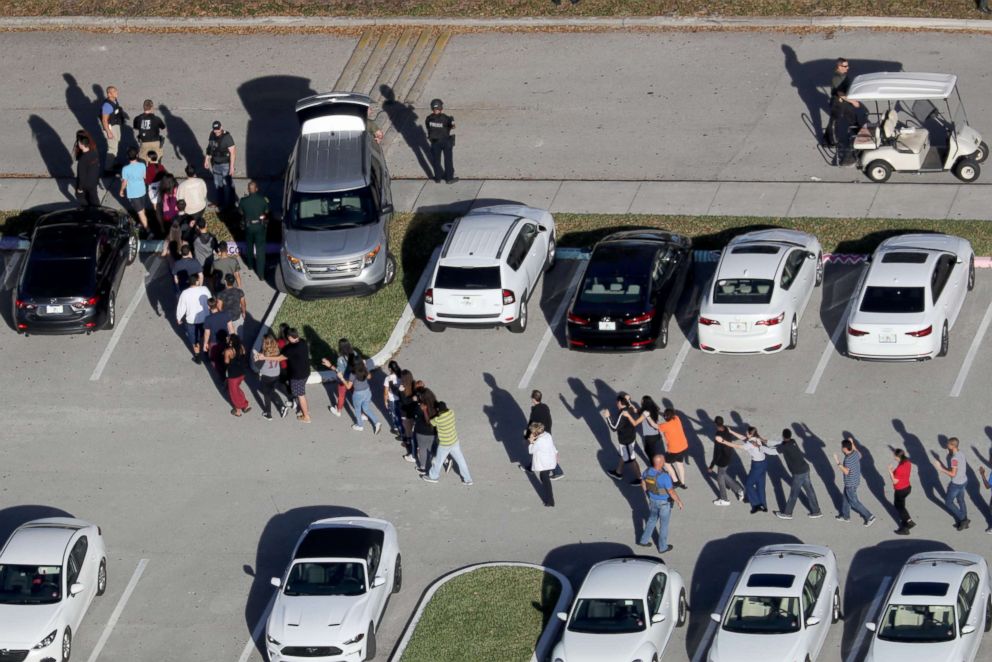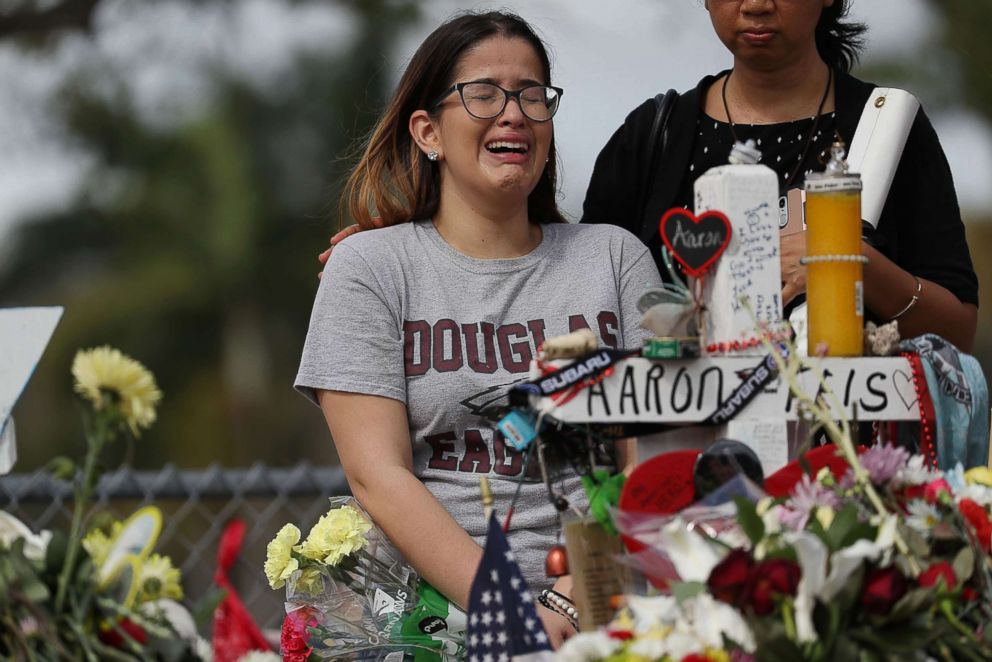6 in 10 say ban assault weapons, up sharply in Parkland's aftermath
Support for new gun laws has risen sharply.
Support for new gun laws has risen sharply, a new ABC News/Washington Post poll shows, including for anti-gun-violence legislation in general and a ban on assault weapons in particular. Large and bipartisan majorities also back raising the legal age to buy long guns and enacting “red flag” gun-confiscation laws.
In the wake of the high school shooting that killed 17 in Parkland, Florida, in February, 62 percent of Americans now support a nationwide ban on the sale of assault weapons, up from 50 percent just since mid-February and 45 percent in late 2015 to its highest since January 2011.
See PDF for full results, charts and tables.
More, 72 percent, support raising the legal age to buy rifles and shotguns to 21 in all states, and 85 percent favor red flag laws empowering the police to take guns away from those judged to be a danger to themselves and others. Such laws have been enacted in six states and proposed in 23 more.

More generally, the public by 57-34 percent now says that enacting new laws to try to prevent gun violence should be a higher priority than protecting the right to own a gun. That broad 23-point preference for new gun laws compares with an even 46-47 percent split in fall 2015.
These shifts aren’t the norm; attitudes on gun control generally have not moved significantly immediately after heinous gun crimes. Then again, the Parkland shooting prompted an unusual response, including the participation of hundreds of thousands of young people in the March for Our Lives.
The public by 71-24 percent also says Congress is not doing enough to try to prevent gun violence, and by 59-34 percent says President Donald Trump is not doing enough. As noted in a separate report Sunday, the issue could be a potent one in November, with 78 percent saying it’s important to them to support candidates who share their views on gun policy.

The changes in views on gun policy come even as many are unsure about the staying power of the student protests that followed the Parkland shooting. Fifty-three percent see this as a lasting movement, while 43 percent think it’s more of a “one-time thing” in the poll, produced for ABC News by Langer Research Associates. That said, another student walkout is planned for Friday, the 19th anniversary of the Columbine shootings; more than 2,000 events nationally have been registered.
Regardless, support for banning assault weapons, raising the age to buy long guns and enacting red flag laws reaches 49, 63 and 81 percent, respectively, even in gun-owning households. That’s a key result because so many American households include a gun owner -- 47 percent in this survey, a numerical high in ABC/Post polls dating back nearly 20 years.
Groups
Women are much more likely than men to support new gun laws, with the greatest growth in those views. In one example, women call passing new laws to reduce gun violence a higher priority than protecting gun rights by almost 3-1, 68-25 percent, while men divide evenly on the question, 46-45 percent. And that priority on new laws is up 16 points among women since 2015, vs. 7 points among men.
Additionally, support for an assault weapons ban has grown twice as much among women as men just since mid-February, up 19 vs. 7 points. That smaller gain among men occurred mostly among nonwhite men -- up from 50 to 63 percent, while remaining essentially unchanged among white men (39 vs. 43 percent).
While there are sharp partisan differences on banning assault weapons, the rise in support crosses party lines. Eighty-two percent of Democrats back the step, up 11 percentage points in two months; it’s 59 percent among independents, up 14 points; and 45 percent among Republicans, up 16 points.
Notable, too, is a big jump in support for banning assault weapons among senior citizens, up 23 points to 77 percent.
While the Parkland protests have been organized as a young-persons’ movement, attitudes among young adults are mixed. Most generally, 18- to 29-year-olds are likelier than those 30 and older to favor creating new laws to try to prevent gun violence over protecting gun rights, 65 vs. 56 percent. On specifics, though, young adults are less likely than those age 50 and older to support an assault weapons ban (55 vs. 70 percent, rising to 77 percent among seniors, as noted) or red-flag laws (79 vs. 88 percent). That said, 18 to 29s are more likely than those 50 and older to support making 21 the legal age to buy rifles and shotguns, 84 vs. 69 percent.
Majorities across demographic groups support raising the minimum age for long guns, including 55 percent of Republicans and, as noted, 63 percent of people in gun-owning households. And red-flag laws have even broader bipartisan backing, from 84 percent of Republicans, 83 percent of independents and 92 percent of Democrats.
This includes solid support in the conservative base: About three-quarters of 2016 Trump voters (77 percent), evangelical white Protestants (77 percent), strong conservatives (74 percent) and white men without college degrees (74 percent) support red-flag laws.
Criticism of Congress, for its part, extends across party lines, albeit to differing degrees. Most Democrats (87 percent), independents (72 percent) and Republicans (54 percent) say the GOP-controlled Congress isn’t doing enough to try to prevent mass shootings in this country.
Republicans are less critical of Trump’s actions; 63 percent say he is doing enough to try to prevent mass shootings. On this, just 32 percent of independents and 11 percent of Democrats agree.
Methodology
This ABC News/Washington Post poll was conducted by landline and cellular telephone April 8 to April 11, 2018, in English and Spanish, among a random national sample of 1,002 adults. Results have a margin of sampling error of 3.5 points, including the design effect. Partisan divisions are 32-25-35 percent, Democrats-Republicans-independents.
The survey was produced for ABC News by Langer Research Associates of New York, New York, with sampling, data collection and tabulation by Abt Associates of Rockville, Maryland. See details on the survey’s methodology here.




